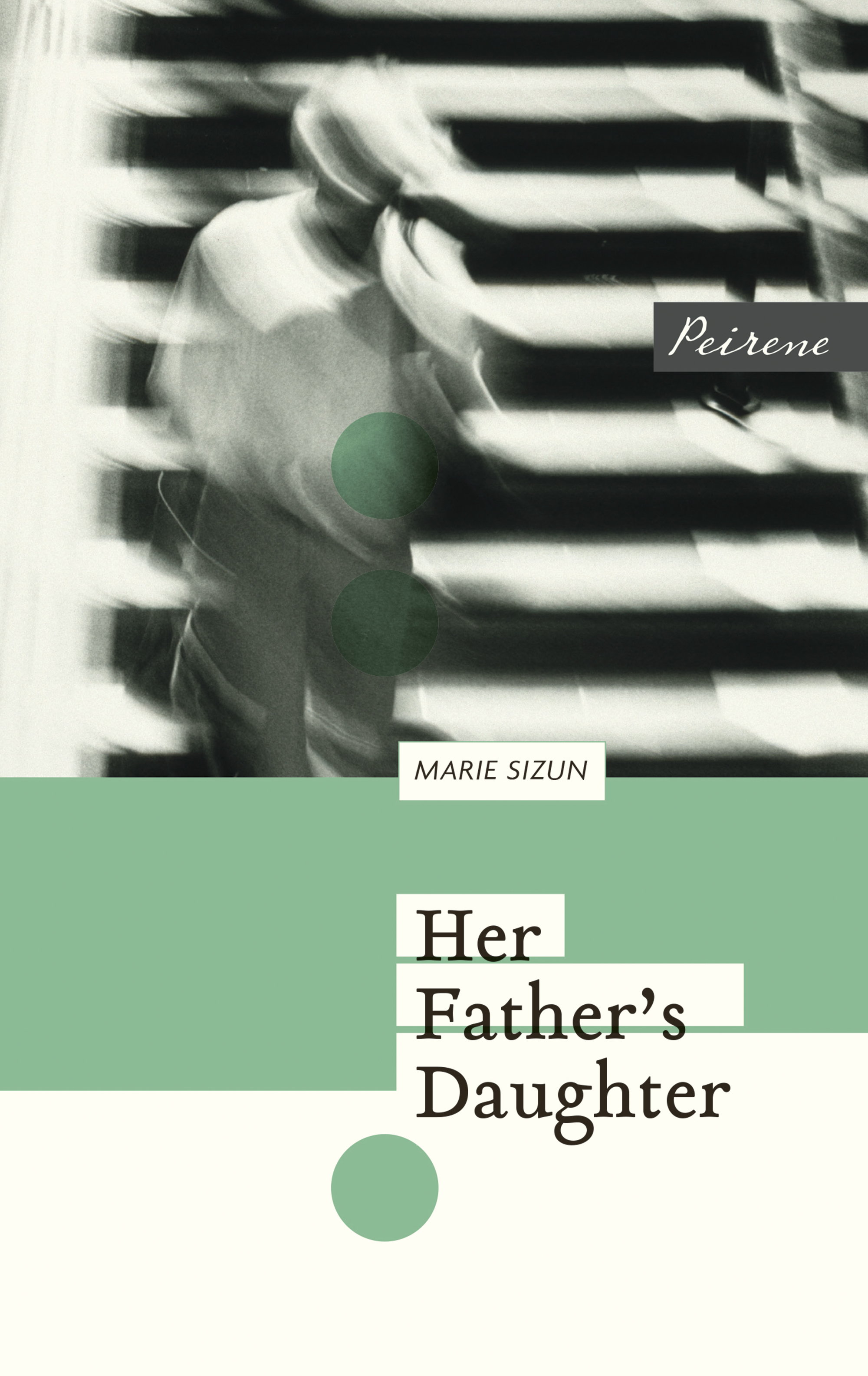Translated from the French by Adriana Hunter, Peirene, 2016
This is the first of several novels published by Peirene Press that I’ll be including in this project. Peirene is a small independent publishing house in the UK, dedicated to seeking out the best of European literature and bringing it to an English-speaking audience. Using the strapline ‘Truly big stories in small packages’, Peirene focuses on short novels, a decision which led the Times Literary Supplement to describe their catalogue as ‘Two-hour books to be devoured in a single sitting: literary cinema for those fatigued by film’. Peirene include this review in their publicity material, and it certainly hits the nail on the head in terms of what you can expect from their books. Each year they publish a themed ‘series’, and release three books within the series that can be bought separately, or purchased together via subscription. So far I’ve read five books published by Peirene, and have yet to find one that disappoints.

Her Father’s Daughter was journalist Marie Sizun’s first novel, published in France in 2005, and longlisted for the Prix Fémina. In an interview with Sizun – then 65 – around the time of its publication in French, she said that it had taken her a lifetime to find the words for this novel, acknowledging that it deals with a painful time from her own past. Nonetheless, this is not an autobiography, and no one interpretation is imposed on us: Sizun does not analyse what happened, she simply reveals it quietly and thoughtfully. The translation does not over-explain either: Adriana Hunter negotiates with ease the child’s story, her confused emotions, and her shifting affections. I couldn’t quite help myself from wondering what certain phrases must or might have been in the original, but not because the translation was bad; on the contrary, it was because it flowed so naturally that I could almost hear the French beneath it. Hunter is a prolific literary translator and renders this understated narrative beautifully, understanding the emotion of the narrative and respecting its restraint.
As Her Father’s Daughter opens, four-year-old France lives alone in an apartment with her mother in wartime Paris; her father is a prisoner of war, and she only knows him through photographs. Despite the historical situation, she lives in an idyll, sharing everything with her mother and enjoying freedom and privilege within the household. We meet France at the moment when her life is about to change: immediately the third-person narrator recounts how ‘something intruded into the intimate, familiar world of the kitchen. Something the child perceives as a threat. When. Comes Home’. The ‘threat’ is realised when the father returns home and the mother’s devotion shifts (‘the child may now have a father but, on the other hand, she might as well no longer have a mother’). Though we are told France’s name early in the narrative, we are also told that this patriotic name that was chosen, ‘duty-bound by the war’, is never used, but rather ‘the child is quite simply the child.’
‘isn’t the regret of a ruined relationship the most quietly cataclysmic of all?’
History is present in the narrative, but does not intrude on it: many novels have been published (in France and elsewhere) about life during the Second World War, but here the focus is very much on personal relationships and the ties that bind: the war is, like any other backdrop, the circumstance in which the protagonists find themselves, and which governs the key facts. What the war cannot govern, however, (unless it is in the simple fact of having kept the daughter from her father) is how the little girl feels, and how she unleashes the chain of events that will lead to the disintegration of her family.
Her Father’s Daughter was published as part of Peirene’s ‘Fairytale: End of Innocence’ series in 2016, and pushes at the boundaries of what we understand a ‘fairytale’ to mean. The ‘end of innocence’ qualifier warns us that ‘fairytales’ are not depicted here as sweet stories with happy endings, but rather as dreams that must be renounced to a reality that comes crashing in. Her Father’s Daughter is the story of a fragile love between a daughter and the father she has never known, which is destroyed by one ill-judged revelation. With the mother’s attention and affection shifting from the child to the husband, the child must try to win over her father, who thinks she is spoilt and does not indulge her in the way she is accustomed to. Little by little, the child manages to establish a complicity with her father, and begins to resent her mother. Arguments between the parents increase in frequency and intensity, and the child tries to understand how to seal the relationship with her father. The fateful decision to tell him the unspoken secret that her mother and grandmother insist was just a dream does indeed drive a wedge between her parents, but to an extent that the child had not predicted: now she must face losing her father for a second time.
For me, Her Father’s Daughter wasn’t a defining moment in my reading life (unlike Peirene’s latest release, the magnificent Soviet Milk), but it was an enjoyable, thought-provoking one. If you read it waiting for something cataclysmic to happen, you’ll be disappointed – but isn’t the regret of a ruined relationship the most quietly cataclysmic of all? This skilful narrative is taut and tense, focusing on what is not said as much as on what is revealed. Its poignant observation of human relationships and the ‘furious intensity of her child’s love’ are as moving as they are measured.
Note: Peirene currently have a half price offer on this title; you can order it for £6 here.